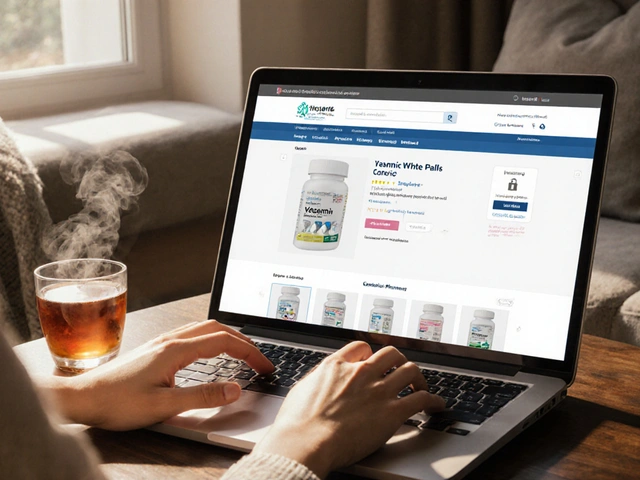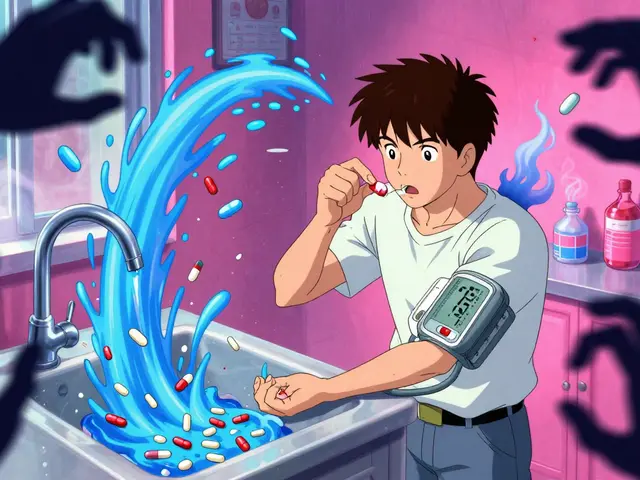When a doctor hands you a prescription for a generic drug, what’s the first thing you think? Is it, ‘This is just as good as the brand name’? Or is it, ‘Why am I getting the cheap one?’? The answer isn’t just about cost or chemistry-it’s about story.
The Power of the Unspoken Story
Most people don’t realize that the way they feel about a medication isn’t shaped by clinical trials or bioequivalence data alone. It’s shaped by the story they’ve been told-or not told-about their illness and treatment. A patient diagnosed with high blood pressure might hear, “Take this pill every day.” But what they hear underneath is: “Your body is broken. You’re dependent now. You’re not in control.” That story sticks. And if the pill is generic, the story gets even darker: “They don’t care enough to give me the real thing.” This isn’t just fear or misinformation. It’s a psychological response rooted in decades of marketing that equated brand names with quality, and generics with compromise. The truth? A generic lisinopril works just as well as the brand-name Zestril. But if the patient doesn’t believe it, they won’t take it. And if they don’t take it, their blood pressure stays high. The drug works. The patient doesn’t.Where Narrative Medicine Comes In
In 1996, Dr. Rita Charon, a physician and literary scholar at Columbia University, noticed something missing in medicine: listening. Not just hearing words, but truly receiving the story behind them. She created narrative medicine-not as a soft add-on, but as a core skill. It’s the practice of paying attention to how patients describe their pain, their fears, their hopes. It’s reading between the lines of what they say and what they don’t. Narrative medicine doesn’t replace science. It deepens it. When a patient says, “I tried the other pill, but it made me feel weird,” a traditional clinician might log it as “adverse reaction.” A clinician trained in narrative medicine asks: What did ‘weird’ mean to them? Was it dizziness? Shame? Fear of addiction? That answer changes everything.How Stories Break Down Resistance to Generics
Take Maria, a 58-year-old woman with type 2 diabetes. She’s been on metformin for five years. Her doctor switches her to the generic version to cut costs. She stops taking it. Why? She tells her nurse, “The brand name made me feel like I was fighting the disease. This one? It feels like I gave up.” That’s not irrational. It’s human. Maria’s identity has become tied to her medication. The brand name was part of her story of resilience. The generic? It feels like surrender. With narrative medicine, the nurse doesn’t push. She doesn’t lecture about cost savings or bioavailability. She asks: “What did that brand name mean to you?” Maria talks about her mother, who died of complications from uncontrolled diabetes. She says, “I didn’t want to end up like her. Taking that pill felt like I was doing something right.” The nurse listens. Then she says: “You’re still doing something right. The pill didn’t change. You’re still fighting. This one just costs less.” She hands Maria a photo of her mother and says, “This is your strength. Not the label on the bottle.” Maria starts taking the generic. Six months later, her HbA1c drops. Not because the drug changed. Because her story did.
Doctors Aren’t Just Prescribing Drugs-They’re Co-Writing Stories
Clinicians trained in narrative medicine don’t just write prescriptions. They write narratives with their patients. They use reflective writing, guided storytelling, and close reading of patient language to uncover hidden beliefs. In a 2023 study in The Permanente Journal, pediatric residents who participated in weekly narrative medicine sessions reported a 40% drop in burnout. Why? Because they stopped feeling like technicians and started feeling like companions. That shift matters for generics. When a doctor says, “This is the same medicine, just cheaper,” the patient hears transaction. But when a doctor says, “I know this might feel like a step back. Let’s talk about what this medicine means to you,” the patient hears partnership. One oncologist in Kentucky started asking her patients to write a one-paragraph story about their diagnosis before prescribing any drug. One man wrote: “I was a carpenter. Now I’m a patient. I don’t want to be defined by this pill.” His doctor didn’t push the brand name. Instead, she said: “You’re still a carpenter. This pill is just a tool. Let’s find the one that lets you keep building.” He took the generic. And he built a porch for his granddaughter that same summer.The Hidden Cost of Ignoring Stories
The U.S. spends over $400 billion a year on prescription drugs. Generics make up 90% of prescriptions but only 20% of spending. Yet non-adherence to generics costs the system an estimated $100-$300 billion annually. Why? Because patients stop taking them. Not because they’re ineffective. Because they feel like second-class medicine. This isn’t a pharmacology problem. It’s a storytelling problem. Patients aren’t rejecting the science. They’re rejecting the narrative that says their health isn’t worth the real thing. Hospitals that train staff in narrative medicine see higher adherence rates across the board. At the VA, patients who participated in narrative sessions were 35% more likely to stick with their generic medications. Why? Because they felt seen. Not as a case number. Not as a cost-saving opportunity. But as someone whose story mattered.
What You Can Do-Whether You’re a Patient or a Provider
If you’re a patient:- Ask yourself: What does this pill represent to me? Is it safety? Control? Shame? Hope?
- Bring that feeling to your doctor. Don’t just say, “I don’t like this one.” Say, “I feel like this means I’m not being taken seriously.”
- Remember: The pill doesn’t define your strength. You do.
- Before prescribing a generic, pause. Ask: What story might this patient be telling themselves right now?
- Use open-ended questions: “What have you heard about this medicine?” “What do you hope this will do for you?”
- Don’t correct. Reflect. Say: “It sounds like you’re worried this isn’t enough.” That opens the door.
It’s Not About the Pill. It’s About the Person.
Narrative medicine doesn’t ask you to stop using science. It asks you to remember that science doesn’t operate in a vacuum. It operates inside human lives-with histories, fears, hopes, and identities. A generic drug isn’t a lesser version of a brand name. It’s the same molecule, the same effect, the same chance to heal. But if the patient doesn’t believe that, it might as well be cardboard. The real breakthrough isn’t in chemistry. It’s in conversation. It’s in listening to the silence between the words. It’s in helping someone rewrite the story they’ve been telling themselves about their illness, their worth, and their right to be well. When you do that, the pill stops being a cost-cutting measure. It becomes part of a larger story-one where the patient isn’t just treated. They’re understood. And that’s when healing really begins.Is narrative medicine just about listening, or is there actual training involved?
It’s not just listening-it’s structured training. Clinicians learn close reading of literary texts, reflective writing, and how to interpret metaphors and silences in patient stories. Programs like Columbia University’s Master’s in Narrative Medicine require months of seminars and supervised practice. It’s a skill, not a tactic.
Can narrative medicine really improve adherence to generic medications?
Yes. Studies at the VA and University of Kentucky show patients who engage in narrative sessions are 30-35% more likely to stick with their prescribed medications, including generics. The reason? They feel heard, not judged. When patients believe their concerns are valid, they’re more willing to trust the treatment-even if it’s cheaper.
Do generic medications really work the same as brand names?
Absolutely. The FDA requires generics to have the same active ingredient, strength, dosage form, and route of administration as the brand name. They must also meet the same strict standards for quality, purity, and performance. Bioequivalence studies show they work the same way in the body-within 3-5% of the brand. The only differences are inactive ingredients and cost.
Why do some doctors still hesitate to use narrative medicine?
Some see it as time-consuming or “unscientific.” But research shows it saves time in the long run. Patients who feel understood ask fewer follow-up questions, miss fewer appointments, and adhere better. Narrative medicine isn’t an extra task-it’s a more efficient way to deliver care. Clinicians who practice it report less burnout and more job satisfaction.
How can I find a healthcare provider trained in narrative medicine?
Look for clinics affiliated with academic medical centers, especially those with humanities or patient experience programs. Hospitals like Columbia, Mayo Clinic, and the VA have formal narrative medicine initiatives. Ask your provider: “Do you use patient stories to guide treatment decisions?” If they pause and say yes, you’ve found someone who listens.






